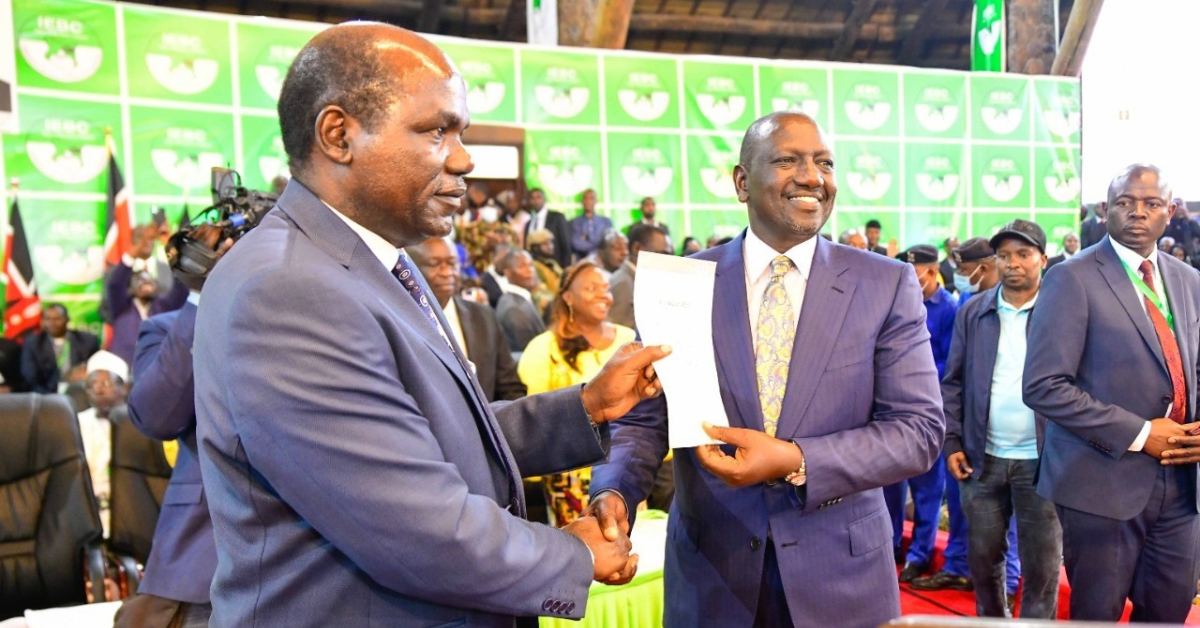The fixation of the moment is the tick tock, tick tock of the clock as it creeps towards midnight 4th December 2012 when pre-election deals must have been concluded. This is what explains the feverish bargaining among presidential candidates as each seeks to craft a winning alliance ahead of the elections in March 2013.
But what is really going on here?
To understand the frenzied political activity, the syndication on the basis of ethnic affinity and the political promiscuity, you need to step back and take a hard look at three formidable concepts – psychology, war and dominance – and their role in the history of nations.
Beneath the mask of smiles, high fives and shoulder slapping, there is always more to see if you carefully peel the veneer. If you do, you might see what lies hidden inside their heads– for that is where it all begins.
Inside a politician’s mind there is always a contest going on. The contest is between pride and despair; conceit and dejection. A loud voice shouts I am more important than the next person, while a smaller, insistent voice says I am a miserable little twerp. Body language, which often speaks louder than spoken words, can sometimes offer glimpses of this inner war.
To understand this even better, we can dissect President Obama’s prayer posted at the Wailing Wall in Jerusalem in July 2008.
Lord,
Protect my family and me.
Forgive me my sins and help me guard against pride and despair.
Give me the wisdom to do what is right and just.
And make me an instrument of your will.
The most telling part of this top politician’s prayer is in the third line ‘…help me guard against pride and despair.’
Pride is the product of a drive to be the Alpha Male (or Female); the top dog, the big boss. And despair is the realisation that deep down, the person staring back at you in the mirror is a mere mortal, a lonely rat that can cower inside a hole or a culvert– as Sadam Hussein and Gadhafi did. Notice the exhortation by President Obama to God to “protect my family and me.”
This is what is happening at the concrete, granular level in the current jostling for power. Consider the actors in the main political configurations – TNA, ODM and URP. The main drivers of pride are ethnic numbers, financial muscle, and the degree of influence over levers of state or foreign support. The main drivers of despair are the ICC trials, the tyranny of time, and the fear of loss of affluence and influence.
At the macro level, the imperative in the current political alignments is not only to grab power, but also to keep the war and dominance intentions barricaded inside the mind. And to keep the spittle of spite – I don’t like that idiot and his people – firmly private.
Historically, complex alliances and treaties between states were a means of balancing power to avoid war and dominance. Europe, in this case, is an object lesson. It is what kept the peace in Europe from the end of the Napoleonic Wars (1815) to the outbreak of World War I (1914). After World War II, careful calibrations of power and alignments – militarily the North Atlantic Treaty Organisation, and economically the European Community – have prevented war for nearly 70 years now.
Sometimes the alliances are brief and convenient such as the one between democratic Britain and communist Soviet Union during the height of World War II.
Across the Atlantic, the careful balance of power in the United States governance structure is arguably a means to prevent another civil war. Besides the balance of power between the three arms – executive, legislative and judicial – the electoral system itself is a veritable dance in a supremacy balance between the States. Power in numbers might allow States to elect the president through the complex Electoral College system. But smaller States have an equal voice in electing the Senators, who, unlike the president (4 years) and House Representatives (2 years), enjoy longer tenure (6 years). And of course the guardians of the constitution – the Supreme Court judges – serve for life!
Back to the tick tock of the clock. As the clock races beyond December 4th to the morning after March 4 2013, the critical question is, will the alliances keep the peace?
The answer is self-evident if we consider the backdrop: a widening income gap, a large number of unemployed youth, festering historical grievances and presidential contestants who, instead of negotiating an acceptable balance of power among ethnic groups – from the Ameru to the Yaku – are driven by fear and the carrot of power and influence.

